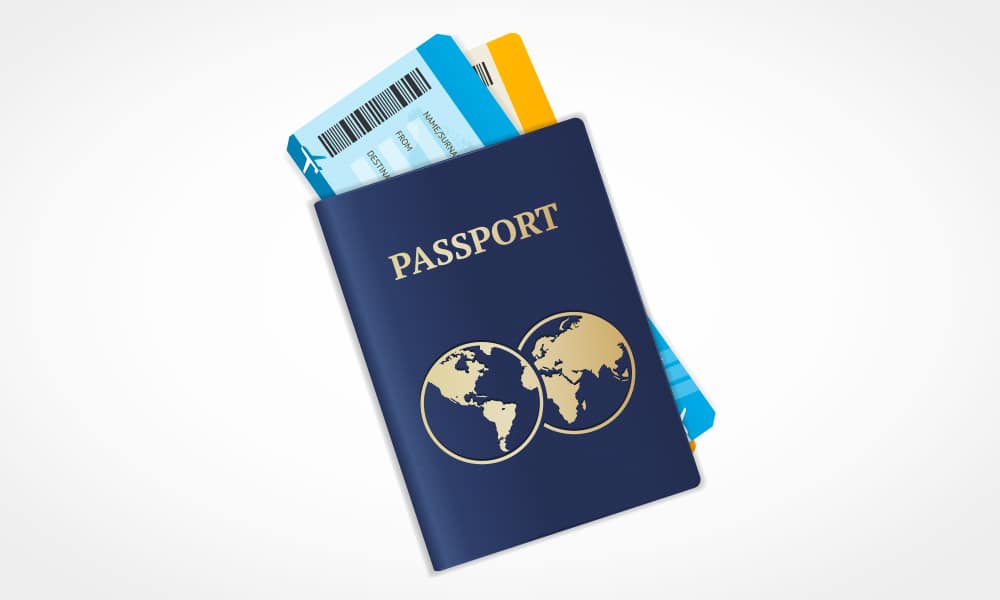


Does any of the traveller have any pre-existing medical condition like BP, diabetes etc? See what it means ›
Now covers COVID-19
10 Things Your Travel Insurance Policy Won't Cover
A travel insurance policy protects you from unpredictable situations. It is your ultimate safety net protecting you from all possible things that can go wrong, but it has its limitations, too. When you buy any travel insurance policy, do not simply assume that it comes with all-inclusive coverage under every circumstance. There are a number of benefits in buying travel insurance, but your insurer cannot cover you under every situation. If you have had your doubts about what travel insurance does not cover, then this article is going to help you a lot.
Travel Insurance Plans on PolicyBazaar#1
- Individuals
- Sr. Citizens
- Students
What Does Travel Insurance Not Help With?

You already know the situations covered by travel insurance - these range from medical emergencies you face during the trip, flight and baggage related issues and a host of issues like passport loss and legal liability. What you may not know is the extent of this coverage, as there are several risky situations no insurer can cover. Exclusions under travel insurance list all the situations that your travel insurance does not help with.
Conditions that are not covered under travel insurance are always mentioned in the policy documents under generic and specific exclusions. You should have a clear understanding of the inclusions and exclusions before making the purchase. For instance, some of the most common situations not covered by travel insurance are:
- Pre-existing medical conditions
- Adventure or high-risk activities
- Mental or psychological disorders
- Pregnancy and childbirth-related complications
- Losses due to intoxication or negligence
- Medical tourism
- Routine check-ups and non-accident emergencies
These are just a few examples of situations that travel insurance does not cover. However, most of these exclusions may be too confusing at times, so you'll have your work cut out for you when you read the terms used in an insurance policy. But if it is difficult for you to comprehend, then make sure you read on carefully.
10 Situations not Covered by Travel Insurance
Given below are the 10 common events and happenings, which your international and domestic travel insurance policy might not cover. You can add them on to your travel insurance policy. Have a quick look at the policy exclusions-
-
Pre-Existing Diseases
Your travel insurance plan will not process your claim for any pre-existing medical condition. Some insurers cover you for declared health conditions, but it is not a benefit offered by most insurers. It is important to declare any pre-existing illness to your travel insurer.
If you face a health issue related to this condition in the country you are travelling to, then you would be travelling at your own risk. It will only be covered if you buy an add-on for PED or your insurer offers coverage for PED under life-threatening circumstances.
Another important thing to remember is that your policy would only compensate for any loss or damage arising due to sudden illnesses, medical emergencies due to accidental injuries, and any unforeseen disasters that are mentioned in the plan.
-
Dental Treatment
You cannot file a claim for routine dental check-ups under your travel insurance policy. It would only cover against acute dental pain or any dental injury resulting from an accident during your trip. Treatment is possible only for real teeth. Some insurers may offer dental treatment coverage but generally these are excluded.
-
Loss or Damage Caused by Mental Disorders/Suicide Attempt
Any self-inflicted damage or suicide attempt by the insured person would not be covered. Any loss or injury due to psychiatric or mental disorders like depression, emotional breakdown, schizophrenia and bipolar disorder will not be processed for a claim. In certain policies, such as student travel insurance plans, some of these issues may be covered. However, these plans are very specific and such coverage is available after purchasing certain add-ons.
-
Travel for Medical Treatment
Medical tourism or travelling exclusively for getting a treatment you planned for is not covered by any travel insurance company in India. Most travel insurance plans do not provide coverage if you are travelling exclusively to seek medical treatment abroad. Even if this treatment is not available in India and only available overseas, you can not claim any benefit related to this treatment. Only emergency medical expenses are covered abroad.
-
Complications due to Pregnancy and Childbirth
During your travel, any health problems associated with pregnancy and childbirth are not covered. Hospitalisation involving childbirth complications like abortion, miscarriage is also not covered by travel insurance plans. You must check your health condition before travelling during pregnancy and avoid travelling altogether if you have complications. Similarly, you should never travel against your doctor's advice.
-
Natural Adversities that Begin Before Your Policy Purchase
Travel insurance provides insurance cover for natural disasters like earthquakes, hurricanes, storms, s etc. But if you have taken travel insurance after a volcano started erupting and the government released a notice of the calamity, then you will not be eligible to claim for any loss or damage.
Similarly, if you still plan to visit a country despite official government-issued warnings, then your trip cancellation benefit won't be applicable as the policy was purchased after the warnings were issued.
-
Adventure Sports and Activities
This one is often mistaken by travellers. Most of the travel insurance policies do not cover any adventure sports like rafting, mountaineering, skiing, bungee jumping, or scuba diving. You will be performing these activities at your own risk. Before planning a vacation, remember that any involvement in life-threatening activities will not be covered.
However, many travel insurance add-ons now offer coverage for various adventure sports. You must purchase them at an additional cost. Please note that no insurer covers adventure or winter sports if you are participating in them in a professional or semi-professional capacity.
You may like to read: Travel Insurance Add-Ons in India
-
Bad Weather Conditions
Due to excessive rain and bad weather conditions, if you suddenly decide to cancel or curtail your trip, you are not eligible to be compensated by your travel insurance company. Only if the bad weather leads to the cancellation of your flight, only then would it be covered. You can't cancel your holidays just because the weather prediction shows heavy rainfall at your destination. Unless there is a strong warning issued by that country's government instructing travellers to not visit, you won't be covered for any cancelled plans.
-
Giving Incomplete Documents or Bills for Travel Insurance Claim
At the time of processing the claim, you need to present all the claim-related documents to get the required compensation. If you do not present all the required documents and bills, the chances are the claim will be rejected. Keep all the payment records because your claim depends on it. This can range from a police or accident report from that country, medical receipts, diagnostic test reports, property irregularity report (PIR) issued by the airline, written confirmation of any baggage delay or loss from your airline and more.
-
If your Claim is Beyond the Policy Inclusions
It is important to note the extent of policy benefits and limitations. Sum insured is the highest amount that you can get under your travel insurance policy. If your claim exceeds this highest amount, then you won't get the exceeding amount.
Insurance policies provide coverage as mentioned in the policy documents. This also includes sublimits and deductibles, two important components of any travel insurance policy. These components are expenses that the policyholder must bear.
If your travel concerns are not listed in the policy fine print, you should check with your insurer if there is any specific add-on for the same.
What are the Limitations of Travel Insurance Coverage?

You may have heard several people complain about their travel insurance claims getting denied or a certain situation not being covered. This is because people often skip going through the fine print after taking a look at the benefits. However, this is where they specify the situations that will not be covered.
For instance, you can only claim trip cancellation under medical emergencies, natural calamities or if there is a death in the immediate family. Any pre-existing illness will not be compensated. However, certain policies provide an add-on feature covering you for the declared PED. You can ask your insurer if they provide an add-on for your particular condition.
Remember to take some time to read the policy document before booking it. To make it an enlightening experience, do not just swear by the verbal communication with your insurance agent. You must read the policy wording to avoid any future discrepancies or troubles.
What's more important is not to get lured just because of a cheap travel insurance premium. It might not give you sufficient coverage or necessary protection when the need arises. Even a high premium policy might not give you an extensive cover. So, you need to compare different travel policies and then zero it down.
If you have clarity regarding the conditions that will not be covered under your travel insurance policy, you will not make any miscalculations. If you skip on policy exclusions, it might affect the entire vacation. Hopefully, with the pointers mentioned above, you will make an informed decision and enjoy your travel in a hassle-free manner.
What Does Travel Insurance Not Cover: FAQs
-
Q: What does travel insurance not help with?
Ans: Travel insurance generally does not cover any pre-existing diseases, adventure sports done professionally, loss due to negligence, or medical treatment costs because of self-harm, attempt at suicide or working in hazardous/dangerous circumstances. -
Q: Does travel insurance cover abortion?
Ans: No, travel insurance plans don’t cover pregnancy or pregnancy-related conditions during the trip. -
Q: Does travel insurance cover dental treatment?
Ans: Yes, emergency dental treatment is covered by many trip insurance policies. Some plans that don’t cover may provide an option to buy a dental cover add-on at an extra premium. -
Q: What does holiday insurance cover?
Ans: A comprehensive holiday insurance policy from India to abroad covers common issues faced during an international journey, including trip cancellation, baggage loss, medical emergencies, emergency assistance, flight cancellations/delays, emergency evacuations, personal liability and more. -
Q: What to do if travel insurance claim is denied?
Ans: In case your claim was denied or you feel it was wrongfully denied, you can appeal the decision with the insurance ombudsman who will help you with the complaint filing and investigation. You can also contact Policybazaar.com customer care for support.
STANDARD TERMS AND CONDITIONS APPLY. For more details on risk factors, terms, and conditions, please read the sales brochure carefully before concluding a sale.
Policybazaar Insurance Brokers Private Limited, Registered Office - Plot No.119, Sector - 44, Gurgaon, Haryana - 122001 | CIN: U74999HR2014PTC053454 | Policybazaar is registered as a Composite Broker | Registration No. 742, Valid till 09/06/2027 | License category - Composite Broker | Contact Us | Legal and Admin Policies
*Price shown is for a 180 day trip to Thailand with 50 thousand dollar coverage for an adult of age 25 years




















































